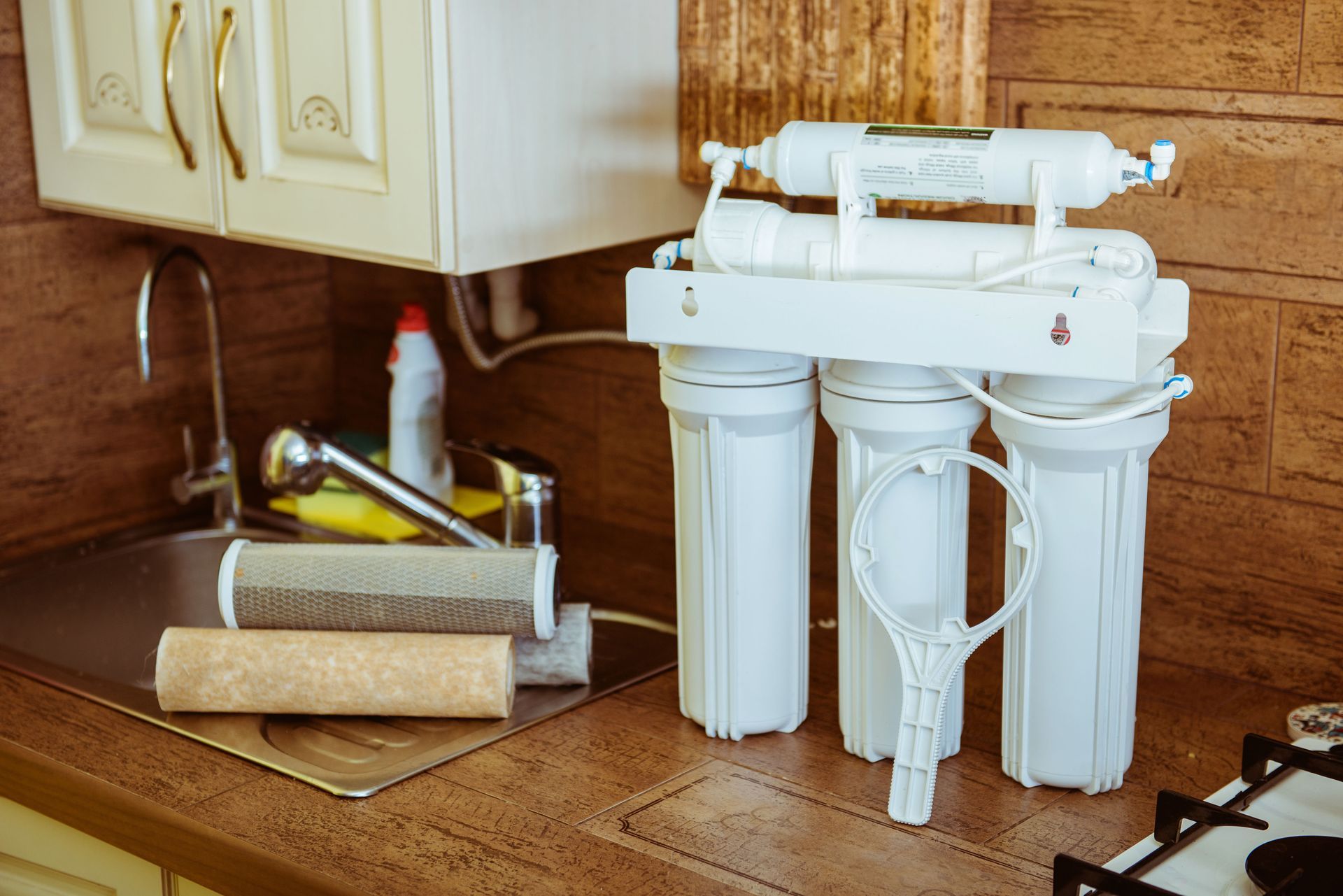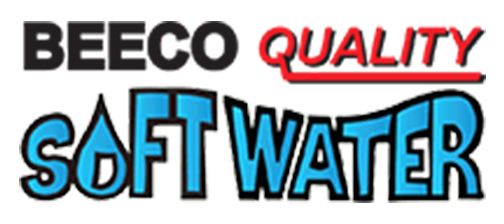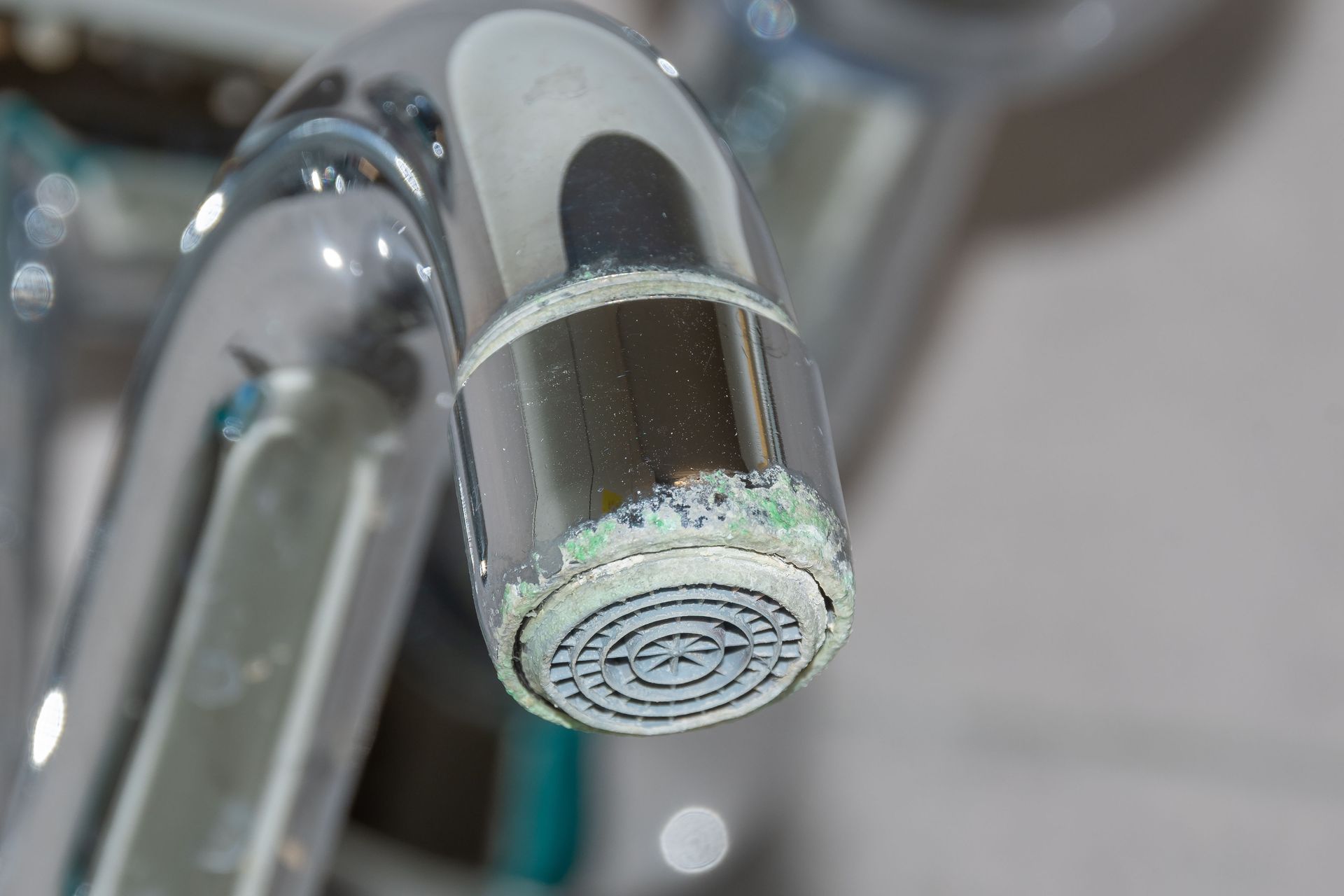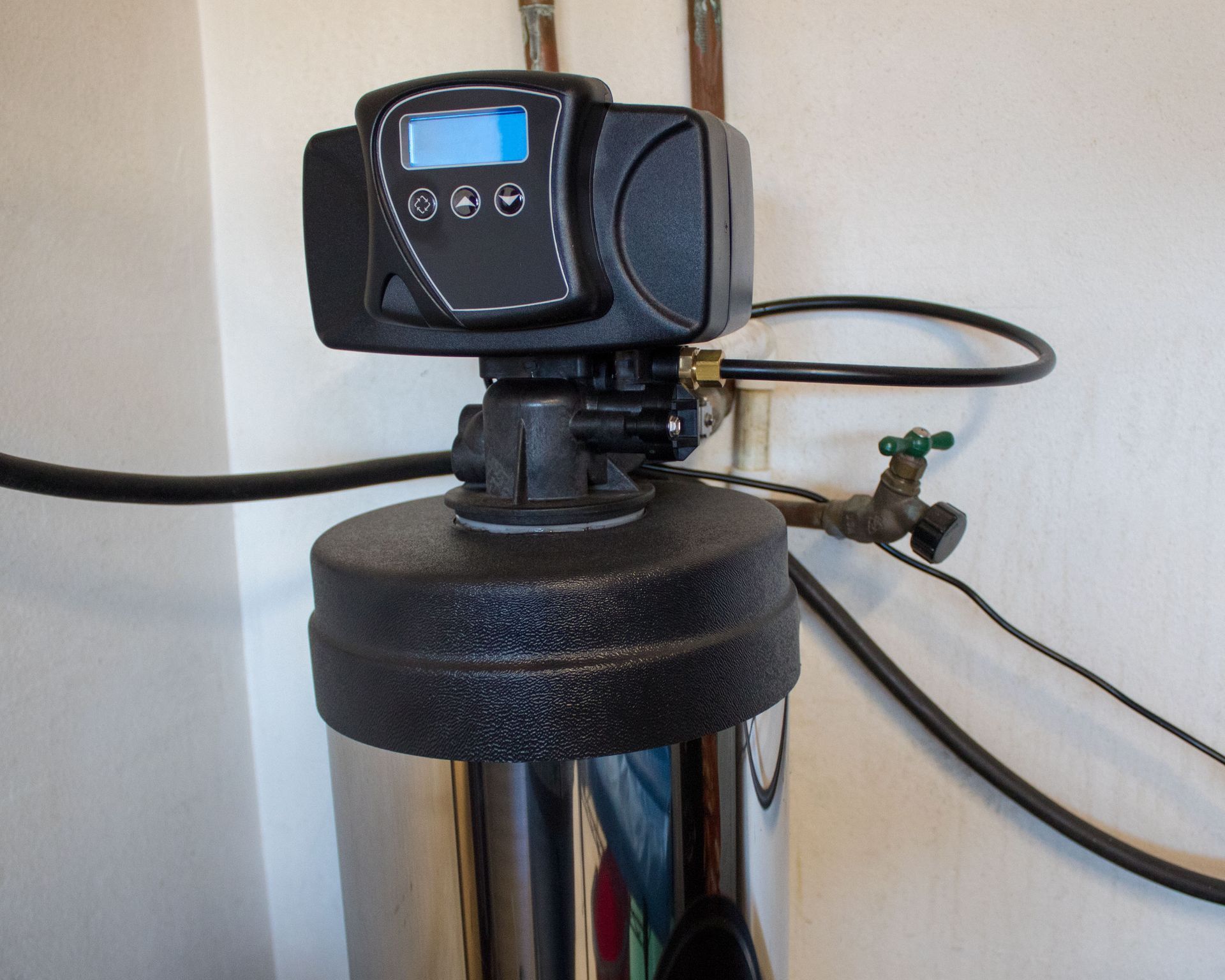November 10, 2025
Clean, properly treated water is one of the cornerstones of a healthy home. Whether you’re drinking a glass from the tap, rinsing vegetables, bathing, or using water for sensitive appliances, the quality of that water affects health, comfort, and the lifespan of plumbing and equipment. Hard water can leave scale on fixtures and reduce the efficiency of water heaters, while iron, sediment, chlorine, and other contaminants can create taste and odor issues, stain fixtures and laundry, and in some cases present health concerns. Understanding the choices available — and the trade-offs between them — helps you pick the right water treatment systems for your house and family.
Common Water Problems Homeowners Face
Many homeowners discover water issues gradually: rusty stains on sinks and tubs suggest iron; chalky buildup on faucets and inside kettles points to hard water; a bleachy smell indicates chlorine; cloudy water or visible particles point to sediment and turbidity. Occasionally wells or municipal supplies show elevated levels of naturally occurring minerals or contaminants that require targeted treatment. Identifying the problem with a water test is the first step — once you know what’s in your water, you can match the right system to the problem rather than guessing and overpaying for unnecessary equipment.
Start With a Water Test
Before choosing water treatment systems, get a comprehensive water test that either a certified lab or a reputable local water treatment professional performs. Tests typically report hardness (calcium and magnesium), iron, manganese, pH, total dissolved solids (TDS), chlorine, and potentially harmful contaminants if there's reason for concern (like nitrates, lead, or bacteria). A proper test gives you the data you need to compare various water treatment systems in a rational way, matching each technology to the contaminant it handles best.
What Salt-Free Water Softeners Do (and Don’t Do)
According to U.S. Water Systems, only about 25% of households have a water softener installed. Salt-free water softeners are increasingly popular for homeowners who want to reduce scale without adding salt to their wastewater. Rather than removing hardness minerals, many salt-free systems use template-assisted crystallization or other conditioning techniques to alter calcium and magnesium so they don’t readily adhere to surfaces. The result is reduced scale buildup on plumbing and fixtures and no need for ongoing salt deliveries or regeneration cycles. However, they don’t lower hardness readings in water tests the way traditional ion-exchange softeners do, and they may be less effective in very hard water situations. For households concerned about the environment or municipal restrictions on salt discharge, salt-free options are an attractive compromise.
Chem-Free Iron Filters Explained
Iron in water can cause unpleasant metallic taste, orange or brown staining, and staining of laundry. Chemical-free iron filters treat iron mechanically or through catalytic media rather than by adding chemicals. These water treatment systems often oxidize dissolved iron and then filter the resulting particles out, or they use specialized media that captures iron through adsorption. The major advantages are low ongoing chemical cost and simplified maintenance compared with chemical feed systems. They are a sensible choice for well owners dealing with moderate iron levels who want an effective, low-maintenance solution that won’t introduce additional chemicals into the home water supply.
Water Conditioners and Filters: Whole-House Protection
Water conditioners and filters cover a wide range of technologies and applications, from whole-house sediment filters that protect plumbing and appliances to advanced media tanks that remove chlorine, chloramines, taste and odor compounds, and certain organics. Combining a sediment pre-filter with a carbon filter or catalytic media in a whole-house arrangement protects showers, tubs, and laundry while improving overall water quality. For many homeowners, a layered approach — sediment removal first, then targeted filtration — yields the best balance of performance and longevity for downstream equipment.
Drinking Water Systems for Clean, Safe Tap Water
While whole-house systems improve water for every faucet and appliance, a dedicated drinking water system at the kitchen sink or refrigerator delivers the highest-quality water for consumption. Reverse osmosis units, under-sink carbon filtration, and countertop remineralization options are common. Reverse osmosis removes a wide array of dissolved impurities and then often adds back beneficial minerals for taste. For families with specific contaminant concerns (lead, nitrates, or volatile organic compounds) a certified drinking water system ensures safe, great-tasting water without relying on single-use bottled water.
Soft Water Systems and Appliance Longevity
Soft water systems — especially traditional ion-exchange water softeners — are proven to extend the life of water-using appliances. By removing hardness minerals, these water treatment systems reduce scale buildup inside water heaters, dishwashers, coffee makers, and washing machines. The result is better energy efficiency, fewer repairs, and brighter laundry. While ion-exchange systems require salt and periodic maintenance, they remain the gold standard for households with very hard water who want measurable reductions in mineral content and visible improvements in soap performance and spot-free glassware.
How to Choose the Right System for Your Home
Choosing the right water treatment depends on several factors: the results of your water test, household size and water use, whether you have a private well or municipal supply, your budget for equipment and maintenance, and environmental considerations like wastewater discharge rules. Start with the problems you want to solve (taste and odor, iron stains, hard water scale, drinking water safety) and choose water treatment systems designed for those issues. In many homes, a combination of services from a trusted provider is the most effective route.
Installation and Maintenance Considerations
Professional installation matters because tank sizes, flow rates, and plumbing layout affect performance. A properly sized whole-house system avoids pressure drops and ensures consistent treatment at typical household flow rates. Routine maintenance varies by technology: sediment filters need periodic cartridge changes, ion-exchange softeners need salt replenishment and brine tank cleaning, and media tanks may require backwashing or media replacement at intervals. Partnering with a professional water treatment service simplifies maintenance and keeps warranties intact, which can save money and hassle down the road.
Cost, Return On Investment, and Health Benefits
Upfront costs range widely — from relatively low-cost drinking water filters to high-capacity whole-house systems with media tanks. Factor in long-term benefits: reduced soap and detergent use, lower energy bills due to more efficient water heaters, fewer appliance repairs, and the intangible value of better-tasting water. For homeowners with specific contaminants that pose health risks, investment in certified drinking water systems can provide peace of mind that’s hard to quantify but deeply valuable. Many homeowners find that pragmatic, phased upgrades (start with filtration and add conditioning later) make the financial sense while delivering immediate improvements.
Why Work With a Professional Water Treatment Service?
Water treatment professionals evaluate your water test, recommend the right combination of water treatment systems, size equipment to your home’s flow and pressure, and handle ongoing maintenance. A full-service provider that offers water treatment services across technologies gives you options tailored to your priorities and budget. Professionals also monitor emerging issues like biofilm or seasonal water quality changes and can adjust or upgrade systems as needed.
Water is an essential, often overlooked part of home comfort and health. Understanding the differences between salt-free and ion-exchange softening, the role of chem-free iron filtration, the benefits of whole-house water conditioners and filters, and the importance of a certified drinking water system helps you make smart choices. With the right combination of technologies and regular maintenance, you’ll enjoy better-tasting water, cleaner fixtures and laundry, longer-lasting appliances, and the peace of mind that comes from knowing your home’s water is handled the right way. Contact our team at Beeco Softwater in Clayton, OH today to learn more about our quality water treatment systems!




